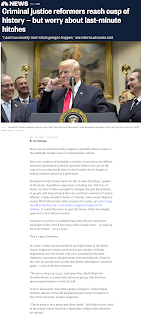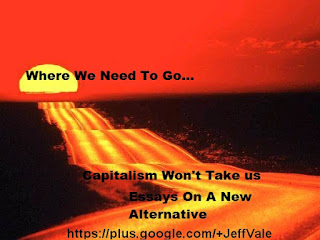1:Lonely? You're not alone. America's young people are suffering from a lack of meaningful connection
2:The $35 billion race to cure a silent killer that affects 30 million Americans
J.V.]
Everything affects everything else.
That is why change cannot be piecemeal, "Liberal," reform anymore. As well as to say why all change must be carefully integrated into existing social systems, so as to make for as seamless an interface, at every functional intersection, as we can possibly manage, with both the heart, and the mind, having their input (the balance of opposites which, naturally, is where the Cosmolosophy part of things comes into play).
Anymore than we can allow the electrified acceleration of change to continue within a ridiculously antiquated operating system. The very amplification of which is whirling us, and the subsystems we need to live in, all around, in so many different (and too often at cross purposes) ways, so much faster everyday, that we, and them, start to fly apart now, faster than the various, local, and national, auto repair institutions, can keep up with; precisely because the resultant mutations to the system, do more "disruptive" things we don't understand, ever faster (because money, as electrons in electric circuits, must find the path of least resistance). Thus creating more instability, for more turbulence, for more, already unstable, subsystems to cope with, and not be fully recuperated from; the very subsystems that are most often, of course, the ones that made abiding by society's rules, workable, or tolerable, at all, so we could have a chance to make not only better choices, but also so that we could then have a better chance of meaningful connections to the community, and the community to us. The kinds of connections that make it plain that you belong, that you matter, and are needed.
The irony here, for me, is that, after the printing press first Democratized information, via repeatable type, electricity should now be the means to turn information into a mutated commodity itself, that fosters repression all over again. A commodity that has also become a major weapon as well. All when the exact opposite outcome could have been what occurred if we had just been willing to redefine work, and come up with a new kind of social operating system. One that could use electrified experience retrieval to our advantage, instead of as a means of "Marginalization," "Reprogramming," and "Control." With all of that to the advantage, naturally, of a few who have convinced themselves of their own "Manifest Destiny." And now precisely because new instrumentality takes them far too virtually close to possessing the power of deities.
The real bottom line here, though, for me is that we must start taking responsibility for ourselves; organizing our own Libertarian Socialist parties in each community, and, with massive work stoppages, begin demanding that we have control of our own destinies, in cooperation with all of the other communities around us. Responsibility that will finally come to realize that we can't just pay others to do what is vitally important, letting ourselves forget about it after that, but then still expecting to have the results we need (as in my contention that "woe be unto those who become too separated from that which sustains them.").
No, we must be there, each and everyone of us, helping to share the load, and sacrifice, of responsibility, so that we all have the right to say we can, directly represent, ourselves. And also to say that we all have a right to share the benefits.
The referenced article quick list:
1:Jerry Brown -- Climate change challenges as serious as those faced in World War II
2:‘Completely Bizarre’ Stock Moves Leave Traders Scratching Heads
3:The Malaysia Scandal Is Starting to Look Dire for Goldman Sachs
4:A Critical Protection for Plant and Factory Workers Is Eroding
5:The Moral Horror of America’s Prisons
Jerry Brown -- Climate change challenges as serious as those faced in World War II
‘Completely Bizarre’ Stock Moves Leave Traders Scratching Heads
The Malaysia Scandal Is Starting to Look Dire for Goldman Sachs
A Critical Protection for Plant and Factory Workers Is Eroding
The Moral Horror of America’s Prisons
See Also:
Lonely? You're not alone. America's young people are suffering from a lack of meaningful connection
[Post Note: The truly sad thing here is that we get caught between a rock, and a hard place, with this type of situation.
Of course spending money to try and find a cure would be a good thing with something that is already affecting so many, and will no doubt affect a good deal more, if other changes aren't made, but that's always the real rub, isn't it.
Not only is it a sad commentary that it is the drug companies who are funding the research, for obvious reasons, both good, and bad, even if we give them the benefit of the doubt. But this also sheds little light on the more obvious question of why we can't treat the larger problem of causation, in the first place.
We can't, naturally, because in that is another, "it's a whole can of worms", kind of thing where, "treating the symptoms," and not the structural elements, that influence people to be so prone to the bad health choices; the ones that put them at risk for this disease, as well as a significant number of others; these are just par for the course for that "whole can of worms."
And this is, most likely, because too many other industry groups, and the people supported by those jobs, are in the business of selling consumption (as opposed to healthy food, or healthy anything else for that matter). That means, besides the starting fact, for the corporations, that they already get to have all the rights of citizenship, but none of the responsibilities, that any considerations, other than irresistible branding, and consumptive qualities that, at the very least, border on the addictive (whether by sugar, or fat, or their various combinations, and now probably pot too, once that gets more accepted as a cash crop), have little importance; even if they are made to put little labels on the packaging that actually declare how bad a thing is (which, also quite likely, will get watered down, obfuscated, and made irrelevant eventually, as most Liberal "Reform" legislation usually ends up.
You couple that with the community demanding so little, generally, from all of us, to keep it all going, and where the meaninglessness of any singular, cog in a lost maze of cogs, kind of commercialized work, makes people even more needful of escape, and the search for something that provides involvement in depth (and maybe a chance for some status, however narrowly focused), you get what is absolutely going to be mostly a sedentary kind of responsive behavior; most likely in front of, or holding, a screen of some type. And letting the software do all of the heavy lifting for you.
That the center cannot hold for a society, mainlined on this sort of lifestyle, is only too ably represented by the lowly sugar doughnut itself; a metaphor that Homer Simpson only too ably, as well, expressed our group supplication to, almost as a religious chant, as he would utter it in that long, drawn out, low frequency, warbled pronunciation of the word.
I do not think it takes a rocket scientist to see what will become of us if we stay with this other aspect of "Business As Usual."
J.V.]













































